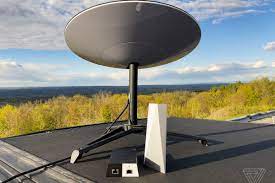
Breaking News
 They Rebuilt the 2008 Crash Machine - And Put It In Your Retirement Account
They Rebuilt the 2008 Crash Machine - And Put It In Your Retirement Account
 Firefly Animation Studios presents "The Book of Atlas" (Jordan Page)
Firefly Animation Studios presents "The Book of Atlas" (Jordan Page)
 Can America Survive California Policies? | Will Swaim #473 | The Way I Heard It
Can America Survive California Policies? | Will Swaim #473 | The Way I Heard It
 Costco dethrones Walmart as America's cheapest grocer
Costco dethrones Walmart as America's cheapest grocer
Top Tech News
 US particle accelerators turn nuclear waste into electricity, cut radioactive life by 99.7%
US particle accelerators turn nuclear waste into electricity, cut radioactive life by 99.7%
 Blast Them: A Rutgers Scientist Uses Lasers to Kill Weeds
Blast Them: A Rutgers Scientist Uses Lasers to Kill Weeds
 H100 GPUs that cost $40,000 new are now selling for around $6,000 on eBay, an 85% drop.
H100 GPUs that cost $40,000 new are now selling for around $6,000 on eBay, an 85% drop.
 We finally know exactly why spider silk is stronger than steel.
We finally know exactly why spider silk is stronger than steel.
 She ran out of options at 12. Then her own cells came back to save her.
She ran out of options at 12. Then her own cells came back to save her.
 A cardiovascular revolution is silently unfolding in cardiac intervention labs.
A cardiovascular revolution is silently unfolding in cardiac intervention labs.
 DARPA chooses two to develop insect-size robots for complex jobs like disaster relief...
DARPA chooses two to develop insect-size robots for complex jobs like disaster relief...
 Multimaterial 3D printer builds fully functional electric motor from scratch in hours
Multimaterial 3D printer builds fully functional electric motor from scratch in hours
 WindRunner: The largest cargo aircraft ever to be built, capable of carrying six Chinooks
WindRunner: The largest cargo aircraft ever to be built, capable of carrying six Chinooks
Elon Musk's Starlink satellite internet will charge users $25-a-month to connect while...

Elon Musk's Starlink satellite internet service will charge users a $25-a-month top-up fee if they want to use it while travelling - but coverage isn't guaranteed.
This extra charge is on top of the $110-a-month subscription users pay to access the broadband network, beamed from thousands of satellites in low Earth orbit.
Portability has worked for some users in the past, but was never officially supported by the SpaceX-owned network, although Musk promised it would be introduced.
As long as the area is covered by one of the more than 2,000 Starlink satellites, users will be able to take their dish and router wherever they go, and get online.
Although it does appear the offering is restricted to within the North American continent, rather than being a global service.
The new service was first spotted by Tesla investor and YouTuber Dave Lee, who shared a screengrab of the 'Add Portability' option.
It looks like it will be a flexible service, with customers able to switch it on and off as required - paying the $25 for a vacation, then switching it off when they return.
The charge is likely because SpaceX has to allow extra bandwidth on all its connection points in case a portable user tries to connect, reducing how many customers it can sell to in that area.
Allowing users to connect to the Starlink network from anywhere is closer to the original idea for the service, proposed by CEO Elon Musk, who's currently buying social media network Twitter for $44 billion.

 RNA Crop Spray: Should We Be Worried?
RNA Crop Spray: Should We Be Worried?

